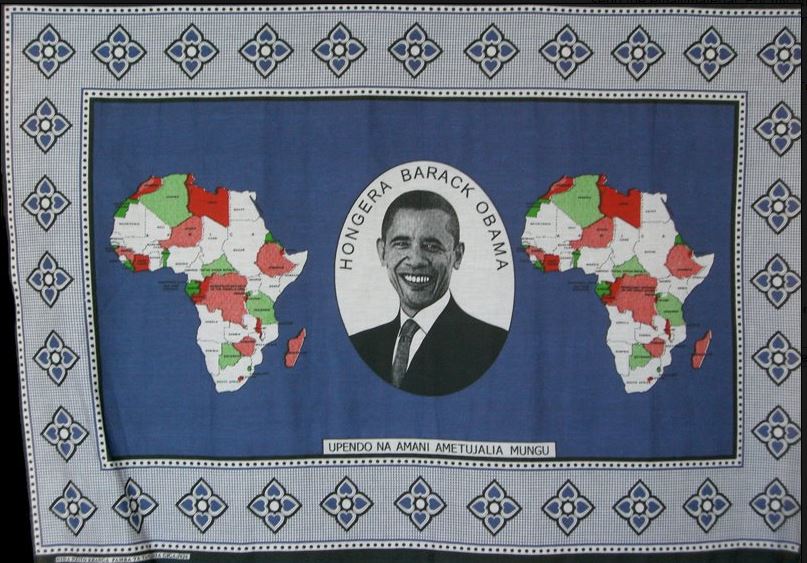Good words, Mr. President, but Africans need more action
Oxfam reflects on Obama’s trip to Africa.
When Marine One buzzed my house last week, I knew it meant President Obama was back from his whirlwind second tour to Africa. So how’d that go? My colleague Laura Rusu laid out five big things the President could deliver on in Africa. Let’s see how he scored.
1. Ensure transparency in the extractive industries. Our key specific ask here was to support the ECOWAS regional mining code. As NFL player and Oxfam Ambassador Anquan Boldin wrote, the draft ECOWAS mining code would “allow communities to decide if mining is the right path to developing their futures, and help protect the human rights of the affected communities.” (Boldin will testify next Thursday on this in the House Foreign Affairs subcommittee on Africa, Global Health, Global Human Rights and International Organizations.)
Score: F Obama held a 48 minute press conference with Senegal’s President Macky Sall. The mining code never came up.
2. Make US foreign aid more transparent. Too often, Africans lack basic information about US aid investments, making it hard for them to plan their efforts or hold their own governments accountable for results. We asked the President to set a firm deadline for when his administration was actually going to deliver on his past pledges to share aid information. (The Foreign Aid and Transparency Act of 2013 introduced yesterday may give him an opportunity to do so soon.)
Score: F Obama mentioned transparency twice in his big Cape Town speech—both referring to the need for Africans, not Americans, to be more transparent. Meanwhile, the President failed to bring up how the US contributes to this lack of transparency by our own failure to simply disclose what we’re already doing. The President has laid out a plan to disclose this information, but the bureaucracy is dragging its feet and Obama says nothing. He needs a better answer—or for his bureaucrats to deliver.
Possible bonus points: Again, F When it comes to Obama’s G8 commitment to making banking and tax information more transparent, Obama could have promised to make that information public or available to Africans so they could track down corruption. Instead, he gave Africans a lecture on accountability, rather than offering them the tools for accountability.

3. Recommit to local control. Four years ago in Ghana, President Obama famous declared that “We must start from the simple premise that Africa’s future is up to Africans.” He promised the US would “[cut] costs that go to Western consultants and administration,” and “put more resources in the hands of those who need it, while training people to do more for themselves.”
Score: D On the plus side, Obama’s administration has in fact put policies in place to increase local investment in African institutions. On this front, progress is slow but real, and getting noticed in Africa. But on other fronts, the US is still pushing control from Washington, rather than enabling more local control. The US is still trying to impose US-written patent rules that make medicine more expensive for Africans and Obama didn’t provide any new commitments to help Africans access the US market.
Meanwhile Obama’s big reveal, his new “Power Africa” plan, seems more geared toward helping US companies than supporting African leadership. Don’t get me wrong. I’d love to see more American companies invest in Africa, but it has to be a win-win. Africans need to control when, where, and how that investment happens. Power Africa seems more geared to the needs of outside companies than the long-term need of African governments and citizens to build, regulate and manage a growing power infrastructure.
4. Commit to signing the International Arms Trade Treaty and urge other leaders to do so. Armed conflict has cost Africa an estimated $18 billion a year—money better spent on education, roads, and health care. The UN Arms Trade Treaty would help keep weapons out of the hands of war criminals and violent extremists.
Score: F Obama talked a lot about how violence undermines democracy and opportunity. But he neglected to mention that the weapons and bullets come from outside Africa. His failure to commit to sign the Arms Trade Treaty undermines his efforts to support African solutions to conflict.
5. Ramp up the Rural Resilience Initiative (R4). We asked Obama to ramp up the innovative R4 program that helps farmers and rural communities manage their own risks in the face of climate change.
Score: Incomplete Obama did mention how the US government is trying to help small farmers produce more, earn more, and adapt to changing climatic conditions. But he failed to make any specific new commitments to how the US government would do so.
The net result of Obama’s Africa trip? Not very good, at least by Oxfam’s scorecard.
We probably shouldn’t be quite this hard on the President. The trip to Africa brought attention to real issues confronting Africans. The commitments Obama did make—investing in electricity production in Africa, re-examining the African Growth and Opportunity Act—are important contributions to African prosperity. Obama’s trip also showcased Africa as a continent of diversity, local leadership and promise, in contrast to the stereotypes of violence and dysfunction Washington often clings to.
But ultimately, the President’s rhetorical approach of supporting and encouraging African leadership doesn’t get enough support from his policies. He talks the talk, but the US government isn’t yet walking the walk—it’s barely crawling. The US is still lecturing Africans about patents and regulations, still withholding basic aid information, and still pursuing a trade and investment model Africa that looks more Chinese than African.
This autumn there are a few big moments where the President can still deliver with African countries in mind. Here’s hoping that at the UN in September and the Open Government Partnership Conference in October, the President can announce what the US government is unilaterally doing to give Africans more tools to control their own destiny.